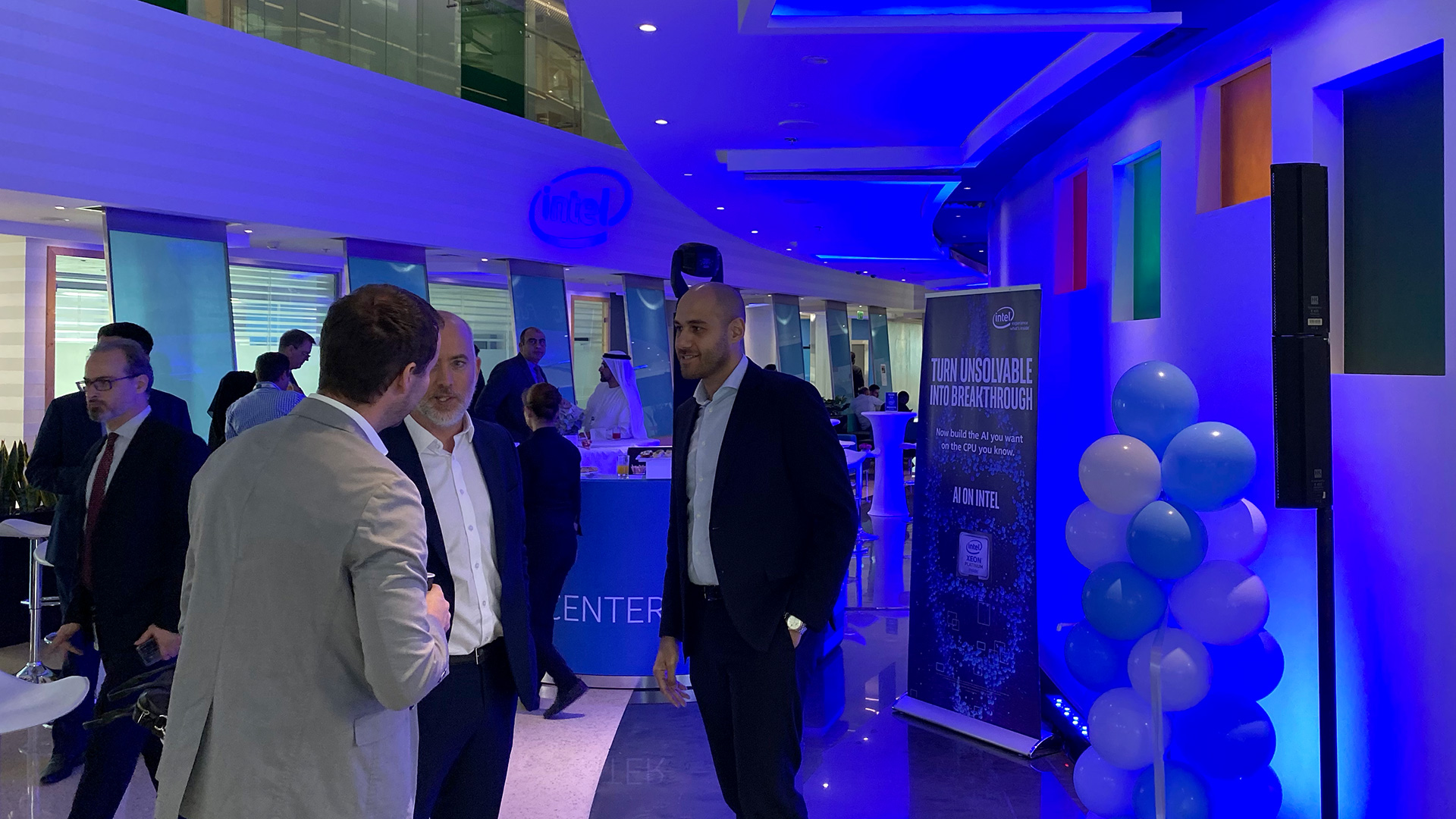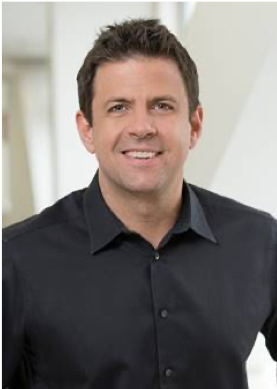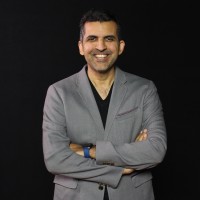Interview: Intel’s Steve Long on Project Athena and the future of computing
Moore's Law is not dead

The introduction of the Core series of processors was a new chapter in Intel’s history. Year after year, following a ‘tick-tock model’, Intel defined the benchmarks on how fast and efficient processors should be. But the last few years have taken some of that shine off- not only has Intel struggled to move to a smaller manufacturing process below 14nm but ARM-based processors that drive almost every single smartphone out there have become the most sought-after piece of silicon.
Steve Long, Vice President & General Manager of Intel’s Sales and Marketing Group was recently in the UAE to promote the Intel Innovation Center in Dubai and TechRadar Middle East managed to get some time with him during his visit.
Why has it taken Intel so much time to move to a manufacturing process below 14nm technology?

Driving innovation is our first and foremost priority, independent of processor technology. The focus should be on what you are bringing out and how you are making a difference, and how people use technology. Gone are the days where it was about the bits and bytes of it, now it’s about what people can do with it.
Are you saying that Moore’s Law is dead?
It is absolutely not. It’s alive and well. We continue to bring and drive innovation, and push things forward. We are ramping our 10th gen processors on 10nm technology. The 10nm is important as it allows us to bring new capabilities and differentiate our capabilities around better integration and graphics improvements. The new technology allows us to bring AI and deep learning inside the CPU where we can actually improve the user experience.
When can we expect these 10nm processors for desktops?
This is not what I would want to talk about right now but here’s what you should think about – what we do at Intel is we ramp technologies, and our 10th gen processor which we just announced will be the fastest ramp that we have ever executed. Over the next 3-4 months, you will see it will surpass any ramp. We have a phenomenal product in the works that’s coming out next year.
Can you talk a little about Project Athena?
Ultrabooks set a wave of innovation around thin and light form factors, and setting a certain level of expectations from a user delivery that lead us to where thin and light are pretty much mainstream. I think we are at the cusp of the next wave of innovation with Project Athena.
With Project Athena, we went out and studied how people actually use technology. This is years of making- we are studying what we call a new class of consumers. We categorize them as ‘mobile go-getter’, somebody who is used to using multiple devices. They are used to a phone first experience but then go to the PC to get things done. And they have a higher expectation of what they want out of the PC.
Get daily insight, inspiration and deals in your inbox
Sign up for breaking news, reviews, opinion, top tech deals, and more.
For Project Athena we studied how these mobile go-getters actually use technology, and we drove an experience-first innovation. We saw that they expect their device to be always ready, they come to the device and they want to focus, and they want their device to be adaptable. Those are the three things that a user wants out of it. There’s a ton we can talk about the engineering and technologies that makes those things possible. We are working with hundreds of ecosystem partners on creating components that can enable those three kind of things that the user cares about.
Does the recently announced dual screen Microsoft Surface Neo fall under Project Athena?
Our vision of devices continue to evolve and foldable form factors will absolutely and eventually fit into a category of Project Athena. Neo is the first foldable device which is powered by Intel, which we spent years co-engineering with Microsoft on that product. It doesn’t categorize as experiences that we are measuring for Project Athena, but it will eventually fit into the Project Athena form factors as we go forward.
Microsoft's Surface launch event showcased hardware based around your competitors. Does that worry you?
Competition brings out the best in everyone- it’s better for consumers. We are excited to compete with products that we have, with Microsoft and with all of the OEM partners.
The Surface group, the devices that we have, and the form factor and the experience they are trying to drive, and their vision for the Surface products is one where Intel will continue to participate in.
Their data center, Azure, are co-built together using our artificial intelligence, which is based on some of the capabilities of Intel technologies, so it’s still a great partnership and we are excited about what we can do with them.
AMD is finally coming back and giving Intel some competition. How do you see that playing out in the next 2-3 years?
Like I said, we continue to push the innovation envelop across the global scale and our differentiation is at a platform level. Very few companies can integrate different technologies and bring them to a market in a way that you can aggregate memory differentiation, you can aggregate Wi-Fi 6 where we have features that users care about. And when you look at the aggregate of all the different technologies that come together in a platform, we believe we are well positioned to continue to compete and take things forward.
And we are going to take on markets – we are going to go after graphics, and take our game in places where we haven’t been before. We are very excited about what’s coming out. You are going to see us by the end of next year or the beginning of the following year getting into the discrete (graphics) side as well.
We’d like to thank Intel and Steve Long for allocating their time to TechRadar and are excited to see the products that Intel releases over the next couple of years.

Abbas has been living and breathing tech before phones became smart or clouds started storing data. It all started when he got his very first computer- the Sinclair ZX Spectrum. From computers to mobile phones and watches, Abbas is always interested in tech that is smarter and smaller because he believes that tech shouldn’t be something that gets added to your life- it should be a part of your life.